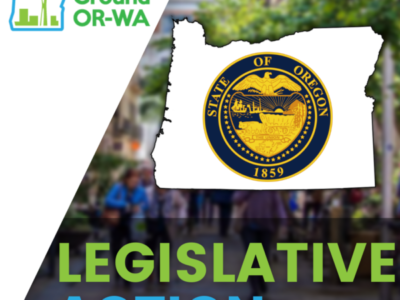A groundbreaking report examines steps state lawmakers can take to help undo the legacy of racism embedded in tax and fiscal policies. Read on…
OCPP- Undoing the Legacy of Racism Through Better Tax Policy
By Juan Carlos Ordóñez
November 28, 2018
…the legacy of tax and budget policies concocted in a deeply racist past continues to be felt in the present.
That is the message of a groundbreaking report by the Center on Budget and Policy Priorities — a must-read for all Oregonians interested in a more just and equitable society:
Advancing Racial Equity with State Tax Policy
By Michael Leachman, Michael Mitchell, Nicholas Johnson, Erica Williams
Nov. 15, 2018
The article continues:
Property taxes in Oregon began to tumble in 1990, when voters enacted Measure 5. It was the first of three property tax restrictions put in place that decade. Property taxes fell from 4.7 percent of personal income in 1990 to 3.2 percent in 2015 — a drop of nearly one-third — according to a recent report from the Center on Budget and Policy Priorities, a non-partisan research institute based in Washington, D.C.
Oregon schools have never recovered from the damage wrought by the property tax limits enacted in the 1990s.
The article continues:
The inequities of Oregon’s current property tax system go even further. Measure 50, enacted in 1997, severed property taxes from real market value and tied it to an artificially created “assessed value.” The measure set the starting assessed value of a property at its 1995 market value, discounted by 10 percent, and limited increases to no more than 3 percent annually. Over time, neighbors with properties that fetch the same price have ended up paying vastly different property taxes. The big winners have been homeowners — mainly white and affluent — in rapidly gentrifying areas.
Changes to the property tax system are politically difficult. In recent years, there have been sensible proposals to untangle the mess that is Oregon’s property tax system. Unfortunately for Oregonians who depend on schools, libraries, and other local services, those proposals have quickly and quietly died.
If Oregonians want local governments that can respond to the needs and aspiration of its residents in an equitable way, we must improve our property tax system.
Property tax limits weaken services in Oregon
August 1, 2018 By Daniel Hauser [This commentary first appeared in The Portland Tribune.]
OCPP Commentary continues…
The report lays out a number of recommendations, many of them applicable here in Oregon:
“Ensure that households with high incomes pay a larger share of their income in state and local taxes than households with lower incomes.” Indeed, Oregon’s tax structure is upside-down, asking proportionately more of the poor than of the rich.
“Improve the fiscal policy “rules of the game” so lawmakers don’t face artificial constraints that prevent them from raising more revenue from wealthier residents or to finance public investments that can promote broadly shared prosperity.” In Oregon, that would mean dispensing with the supermajority requirement for bills to raise revenue, reforming the highly restrictive property tax limits put in place by Measures 5 and 50, and reforming or eliminating the “kicker” law.
Commentary:
Here is yet another call to reform the restrictive and unfair property tax limits imposed by M5 and M50.
This time – in the legislative session of 2019 – let us determine that the reform proposals to authorize a local option exemption from M5 and M50, a return to true market assessments, and a change to a land value tax will NOT “quickly and quietly die”.
Also, how about adding a provision to justly tax private land ownership that includes a resident’s dividend, a new kind of “kicker”?



